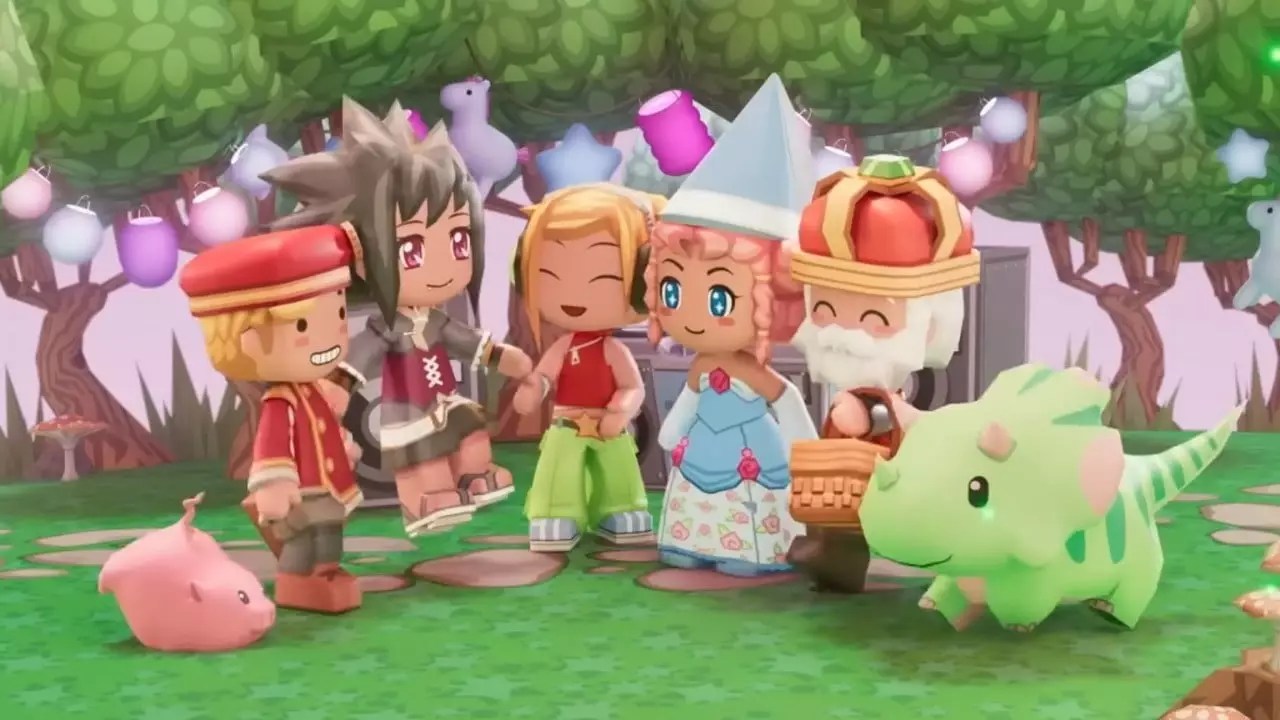The gaming community is no stranger to nostalgia, and EA’s recent decision to release the MySims Cozy Bundle on the Nintendo Switch has reignited interest in a beloved franchise. The developers have provided an update, introducing a range of new features and bug fixes in the latest Version 1.2. Although these adjustments appear to enhance gameplay, they also raise essential questions about the game’s long-term viability and the nature of post-launch support in the industry.
With the introduction of a new teleport interaction designed to assist NPCs trapped in pathfinding issues, one must consider whether such measures genuinely enrich the user experience or simply exemplify the limitations of outdated coding practices. The teleport feature allows players to help NPCs that may find themselves stuck due to poorly constructed pathways, a common issue in simulation games. However, this solution feels more like a temporary fix rather than a comprehensive overhaul of the core gameplay mechanics inherent to MySims: Kingdom.
Moreover, while increasing the item limit by 50% certainly opens new avenues for creativity in players’ designs, it hardly addresses the persistent pathfinding problems that have plagued the game for years. Such tweaks appear necessary, but they also highlight how addressing the underlying issues often requires significantly more effort than merely patching holes with superficial updates.
The list of bugs that were addressed in the update—ranging from duplication issues to NPC voice pitch alterations—shows earnest effort from the development team. Yet, one can’t help but question the state of quality assurance in game development. Is it typical for a modern game, even a remastered title, to come with such notable bugs? The randomization features in the Create-a-Sim (CAS) mode, which incorrectly failed to randomize skin tones, suggest a somewhat lax approach to testing pre-launch; features that should fundamentally work are still riddled with flaws.
The team’s commitment to rectifying these issues demonstrates a willingness to evolve. However, the fact that numerous bugs have been foundationally persistent since the game’s original release highlights a deeper concern: are developers more focused on rolling out updates for monetization than on delivering polished experiences? While improvements are undoubtedly appreciated, they should correspond with a desire to enhance gameplay for an audience that may have been disappointed by previous missteps.
The developers have promised future updates that will tackle “top community concerns” like motion sickness due to automatic camera rotations and NPC interaction issues. While it’s commendable that the team is receptive to player feedback, it shines a light on the broader issue of devs regularly responding to community concerns only after significant time has passed. This reactive approach raises the issue of whether the game should have received a more thorough pre-launch evaluation, particularly considering the dedicated base still loyal to the franchise after all these years.
What’s more concerning is the note indicating some issues may remain unresolved due to the game’s outdated architecture. It begs the question: if the developers are aware of the hurdles brought about by “legacy hardcoded elements,” what does this mean for the future of MySims? Once a cherished series, this dependence on dated programming may hinder significant evolution, leading to stagnation rather than innovation.
Although EA assures players that they are working hard to improve stability, the prognosis appears tenuous. With each passing update, there’s an increasing narrative surrounding how nostalgia isn’t enough to revive a title that, while charming, exhibits clear signs of age. The existence of lingering issues combined with the developers’ admissions suggests a game struggling to adapt to modern standards.
While the latest MySims Cozy Bundle update represents an attempt to breathe new life into an old classic, it simultaneously raises substantial concerns about the decision-making in game development today. The community deserves more than just band-aid solutions; it calls for a comprehensive reevaluation of the updates to provide a fulfilling experience that matches players’ love for the franchise. Whether this will change in the years to come remains to be seen, but for now, players must navigate a nostalgic yet notably flawed gameplay experience.


Leave a Reply